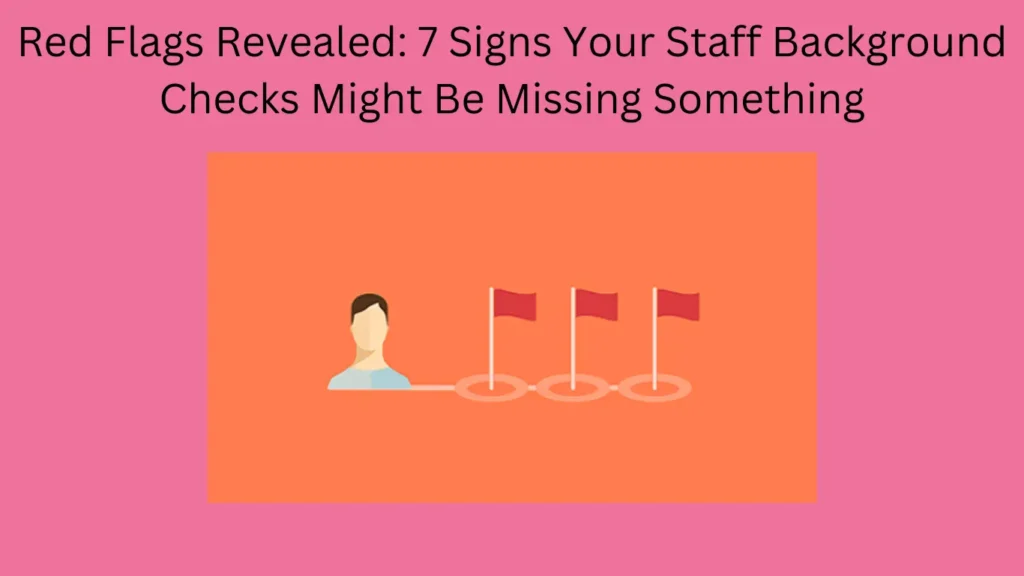Background checks are essential for ensuring the safety and integrity of your workforce. However, there are instances where certain red flags may indicate that your background checks might be missing important information. This guide explores seven signs to look out for, focusing on creating helpful, reliable, people-first content.
1. Inconsistent Employment History
If a candidate’s employment history shows frequent job changes or unexplained gaps, it could indicate that they are hiding something or have not been entirely truthful about their work experience.
2. Discrepancies in Educational Qualifications
Mismatched or unverifiable educational qualifications could indicate that a candidate has falsified their credentials, raising concerns about their integrity and honesty.
3. Criminal History Omissions
Failure to disclose a criminal history or providing incomplete information about past convictions could be a significant red flag, indicating a lack of transparency and potential risks to your organization.
4. Inadequate Reference Checks
If reference checks do not provide sufficient information about a candidate’s work performance, reliability, or character, it could indicate that your background checks are not thorough enough.
5. Negative Online Presence
A candidate’s online presence, including social media profiles and public records, can reveal valuable information about their character and behavior that might not be captured in traditional background checks.
6. Inconsistencies in Personal Details
Inconsistencies in a candidate’s personal details, such as their name, address, or employment history, could indicate that they are using multiple identities or hiding information.
7. Lack of Verification of Claims
If your background checks do not verify the claims made by a candidate, such as their work experience or qualifications, it could indicate that crucial aspects of their background are being overlooked.
Conclusion: Ensuring Comprehensive Background Checks
In conclusion, it is essential to be vigilant for these red flags when conducting background checks to ensure that you are obtaining accurate and comprehensive information about your candidates. By addressing these signs, you can strengthen your background check process and make more informed hiring decisions.
For further Inquires Contact Us
FAQs
Q1: What are red flags in staff background checks?
A1: Red flags include inconsistent employment history, discrepancies in education, criminal history omissions, inadequate reference checks, negative online presence, inconsistencies in personal details, and lack of verification of claims.
Q2: Why are red flags important in background checks?
A2: Red flags help identify potential risks and discrepancies in a candidate’s background, allowing employers to make informed hiring decisions and ensure the safety and integrity of their workforce.
Q3: How can I address red flags in background checks?
A3: Address red flags by conducting thorough background checks, verifying all claims made by candidates, conducting comprehensive reference checks, and assessing online and public records.
Q4: What should I do if I encounter red flags in a background check?
A4: If you encounter red flags in a background check, investigate further to obtain additional information, address any discrepancies with the candidate, and consider consulting legal or HR professionals for guidance.
Q5: How can I improve my background check process to avoid missing red flags?
A5: To improve your background check process, ensure it is thorough, consistent, and compliant with legal regulations. Consider using reputable background check services and implementing additional verification measures as needed.
